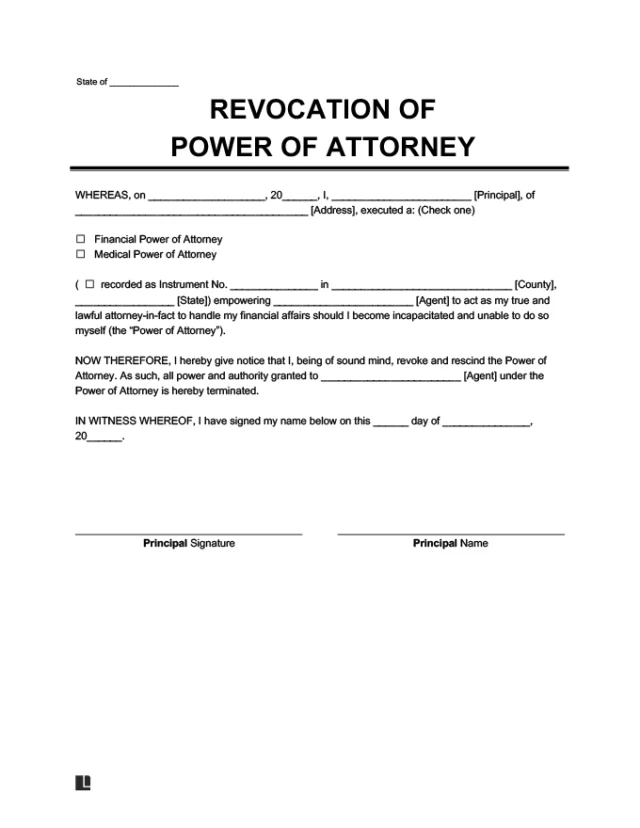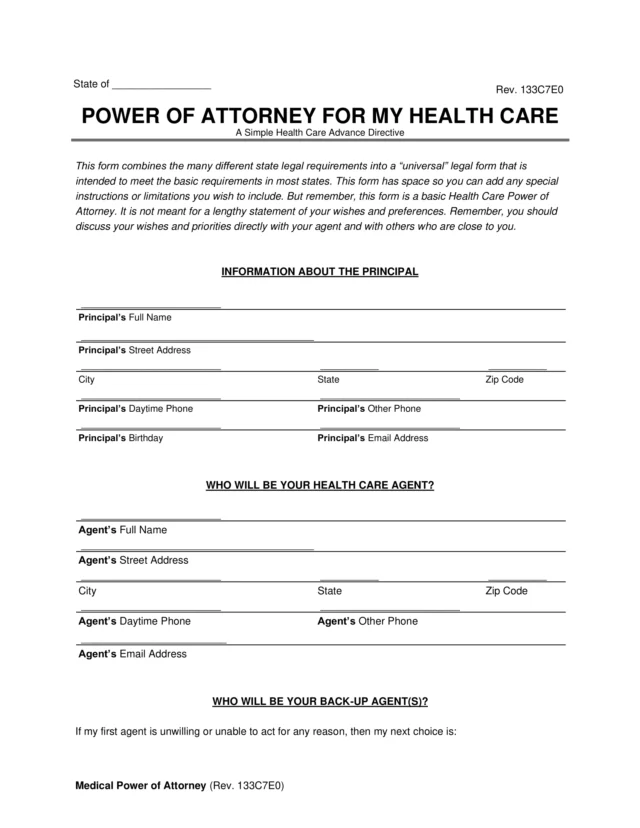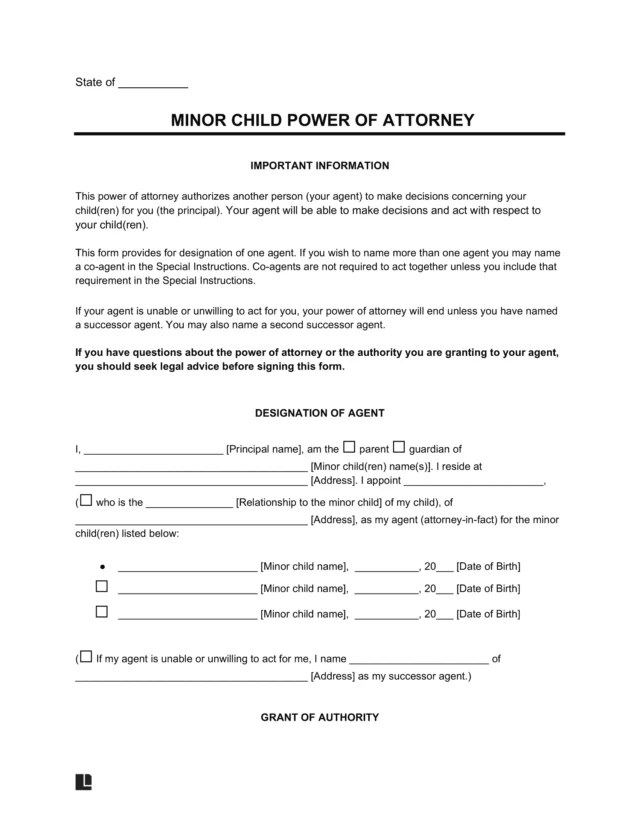A Minnesota durable power of attorney form is a document that grants someone (the “agent”) the legal authority to act and make financial decisions for another person (the “principal”).
Laws
In Minnesota, power of attorney forms can be made durable by including the following (or similar) language:
“This power of attorney shall not be affected by incapacity or incompetence of the principal.” / “This power of attorney shall become effective upon the incapacity or incompetence of the principal.”
- Statute: § 523.01.
- Presumed Durable: No (§ 523.07).
- Signing Requirements: Must be dated and signed by the principal.
- Notarization: Only requires notarization if signed on behalf of the principal.
- Statutory Form: Yes – (§ 523.23).
Definitions
Durable – A durable power of attorney is effective even if the principal loses the capacity to act on their own behalf. A power of attorney is durable if it contains language such as “This power of attorney shall not be affected by incapacity or incompetence of the principal” or “This power of attorney shall become effective upon the incapacity or incompetence of the principal,” or similar words showing the intent of the principal that the authority conferred is exercisable notwithstanding the principal’s later incapacity or incompetence (§ 523.07).
Power of Attorney – The Minnesota Statutes do not define “power of attorney” other than to say that the term only applies to those that are validly executed, as explained in the signing requirements (§ 523.03.3).
Specific Powers and Limitations
Restrictions on Gifts and Transfers
Minnesota Statutes, section 523.24, subdivision 8 outlines an agent’s powers and limitations when it comes to gifts and transfers.
Types of Gifts:
- Gift “for the benefit of” an individual: This category includes contributions made by an agent to a trust, deposits into accounts under the Minnesota Uniform Transfers to Minors Act, investments in prepaid tuition plans, and contributions to 529 education savings accounts, all in line with state-specific statutes.
- Outright gifts to individuals: An agent is permitted to make outright gifts of the principal’s property, adhering to the annual dollar limits set by the federal gift tax exclusion. This involves making gifts for someone’s benefit without direct transfers, in compliance with Minnesota’s guidelines on gift transfers and tax exclusions.
- Consent to split gifts: An agent can consent to the splitting of gifts made by the principal’s spouse, effectively doubling the allowable exclusion limit per donee by leveraging the annual gift tax exclusions of both spouses.
Considerations:
- The principal’s historical gift-making patterns.
- Eligibility for assistance programs or benefits under Minnesota regulations.
- Strategies for minimizing various taxes, following Minnesota tax laws.
- Evaluation of the principal’s property and future financial needs, under Minnesota laws on property and fiduciary duties.
- Restrictions on agents, especially regarding self-benefiting transactions, unless explicitly permitted.
Agent’s Authority Limitations
When It comes to critical decisions about your property and its management during your lifetime and after your death. To grant these powers, explicit permission is required by initialing next to the specific authority in the durable power of attorney document; otherwise, the agent’s powers are restricted.
Safekeeping and Registration
Minnesota may not have a statewide registry for Durable Powers of Attorney, but laws might require registering documents related to real estate with the county recorder’s office.
Additional Resources
- Minnesota Judicial Branch: Provides specific information on durable powers of attorney.
- LawHelp Minnesota: Provides specific information and assistance, reflecting the state’s commitment to legal support for its residents.
- Attorney General Office: Offers resources for those seeking guidance on durable powers of attorney and other legal matters.




